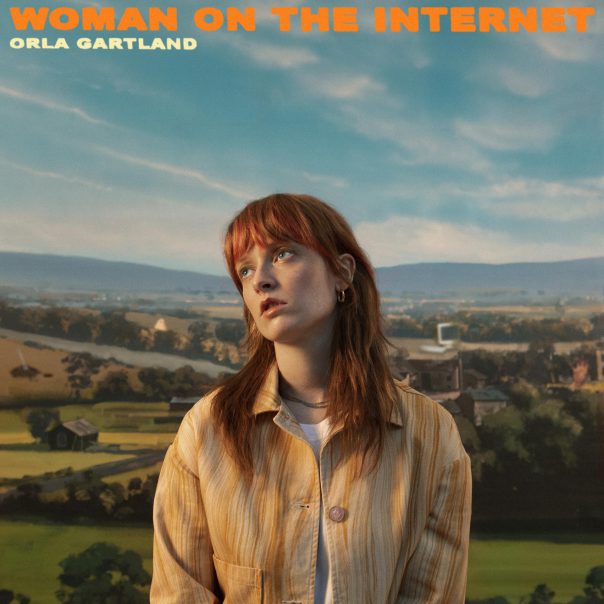Orla Gartland low on flash, high on substance with ‘Woman on the Internet’

Orla Gartland is so unflashy with her artistic gifts that more jaded listeners might overlook them altogether. The young Irish singer-songwriter’s debut album, Woman on the Internet, doesn’t have any in-your-face revelations. Her spare, elegantly quirky electro-pop will sound familiar to anyone who’s heard Imogen Heap, Sylvan Esso, or St. Vincent (all of whom Gartland has cited as inspirations). Also, her lyrics don’t reach too far beyond standard themes of female identity, self-discovery and romantic dysfunction.
Woman on the Internet
Orla Gartland
New Friends/The Orchard, Aug. 20
8/10
But here’s the trick with Woman on the Internet: Its very lack of flash—its commitment to staying in its lane—is a sign of its greatest strength. Gartland seems to know enough about herself as a person and a musician to say and do exactly what she wants, no more and no less. And when you pay close attention, you’ll realize that’s more than enough to make the album a worthwhile listen.
The first tipoff is the lyrics. Sure, plenty of songwriters have written about self-discovery, etc. before—but seldom with such plainspoken wit. From there, you might notice how often Gartland’s simple tunes stick in your mind long after the album’s done. You could also appreciate the subtleties of Woman on the Internet’s spacious production. Acoustic and electronic instruments layer on top of each other and sneak up on you. Gartland’s multi-tracked vocals blend and weave.
The album begins with “Things That I’ve Learned,” a brief list of lessons that Gartland’s 25 years of life have taught her so far. The track’s plinking percussion sounds like someone banging on an empty pot, which may well be the case. Orla Gartland took a cue from Sylvan Esso and created beats by tapping on objects in her flat and the studio. This adds a touch of homeliness to the truths of the lyrics, which range from the sartorial (“Never buy the jeans that you’ve never seen”) to the psychological (“You’re living your life in your mind, you don’t get it”). Gartland knows she doesn’t have it all figured out, though—as she says, “There’s no manual, and if there is, I haven’t read it.”
Up next is “You’re Not Special, Babe,” which turns out to be a pep talk rather than a put-down. Gartland counsels a disheartened friend. “Everyone fucks up and then breaks up and then makes up/ Everyone has days where they don’t wanna wake up,” she sings. Her nimble vocals—rippling on the verses, soaring on the chorus—and bouncy beats underline the keep-your-chin-up message of the lyrics.
On the third track, “More Like You,” Gartland admits that she falls prey to insecurities, too. The titular “woman on the internet” appears here; she’s an unnamed online influencer whose apparent perfection makes Gartland feel like a schlub. The falling harmonies on the chorus suggest those nagging thoughts that creep into your mind sometimes and just won’t go away. “Over Your Head” addresses an ex who was too self-involved to be fully involved with her. Buzzing synthesizer and guitars hint at an anger and resentment that the somber vocals and melody belie.
“Zombie!” shakes off the doldrums with a teasing yet sympathetic attack on toxic masculinity. The playful harmonies and lively tune all but dare any emotion-suppressing male not to grin and dance around his room. The acoustic guitar-driven “Madison” has Gartland yearning hopelessly for an absent friend. Details like “staring at my phone in bed” and begging to “be your sister or your daughter/ Or your houseplant in the corner” should hit home for anyone who went through an angsty adolescent phase. On the pensive “Do You Mind,” Gartland deploys some gentle piano and delicate polyrhythms to mark the end of grieving for a failed relationship.
On “Codependency,” Gartland drops bursts of rock guitar and drums to blow apart a relationship plagued by dysfunction. “Pretending” returns to “More Like You” territory as she laments trying to hide what she felt and thought to fit in. The solo piano ballad “Left Behind” captures the pain of being with someone who you know will leave soon.
“Bloodlines/Difficult Things” ends the album on a sober note. Gartland recalls her mother, “a strong and stoic woman” whom she loves dearly but had to leave “’cause we never talk about difficult things.” The percolating beats and hopeful tune suggest she’ll do fine on her own, but like the decent young lady she is, she’ll “remember to call home on the weekend.”
Follow reporter Ben Shultz at Instagram.com/benjamin.schultz1.
